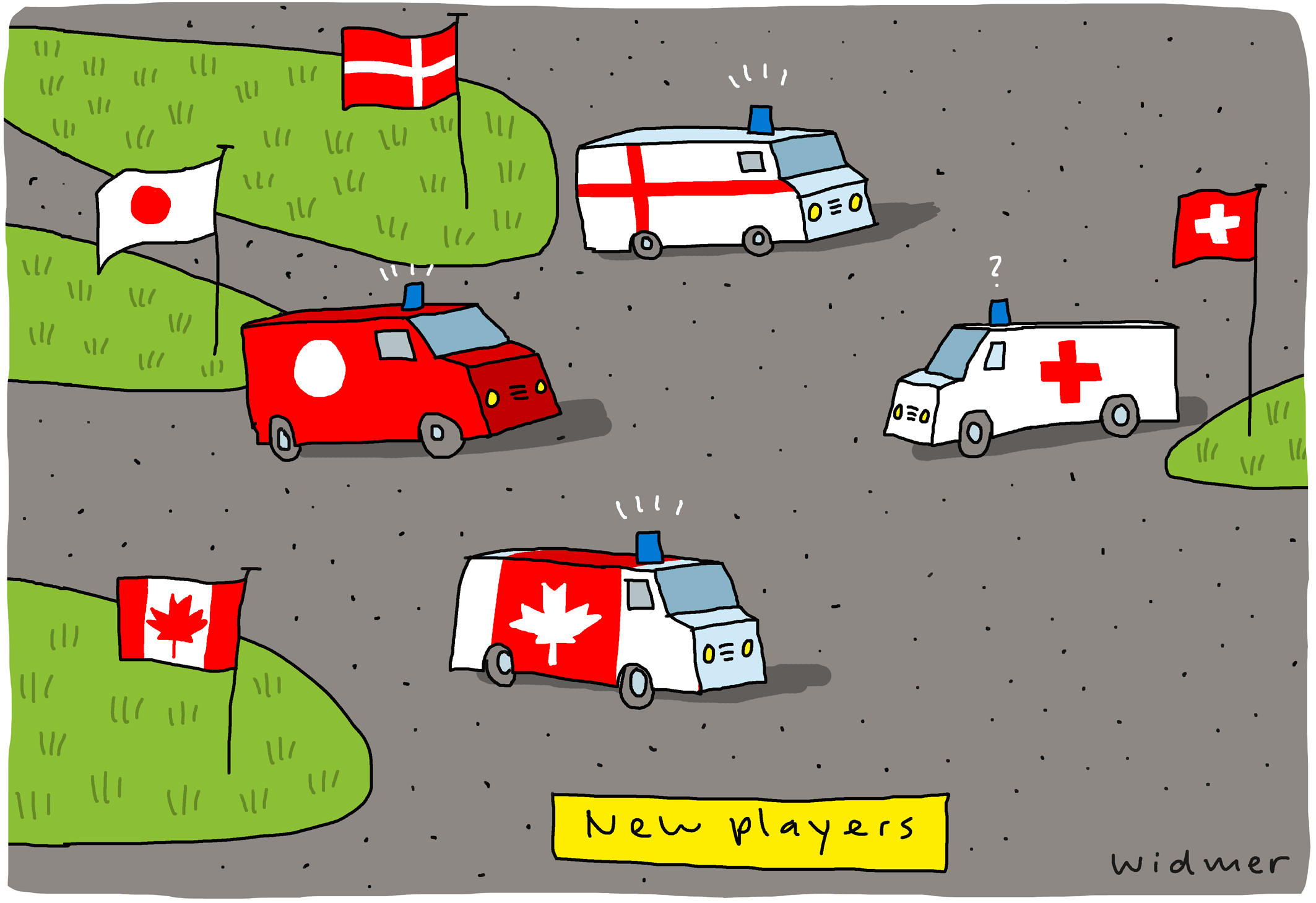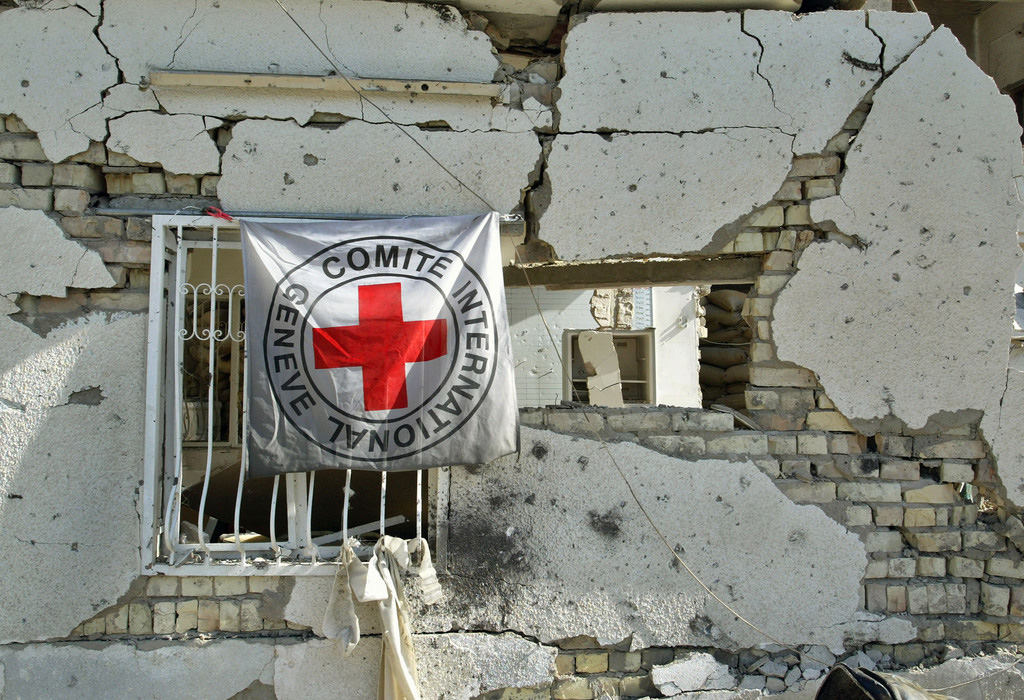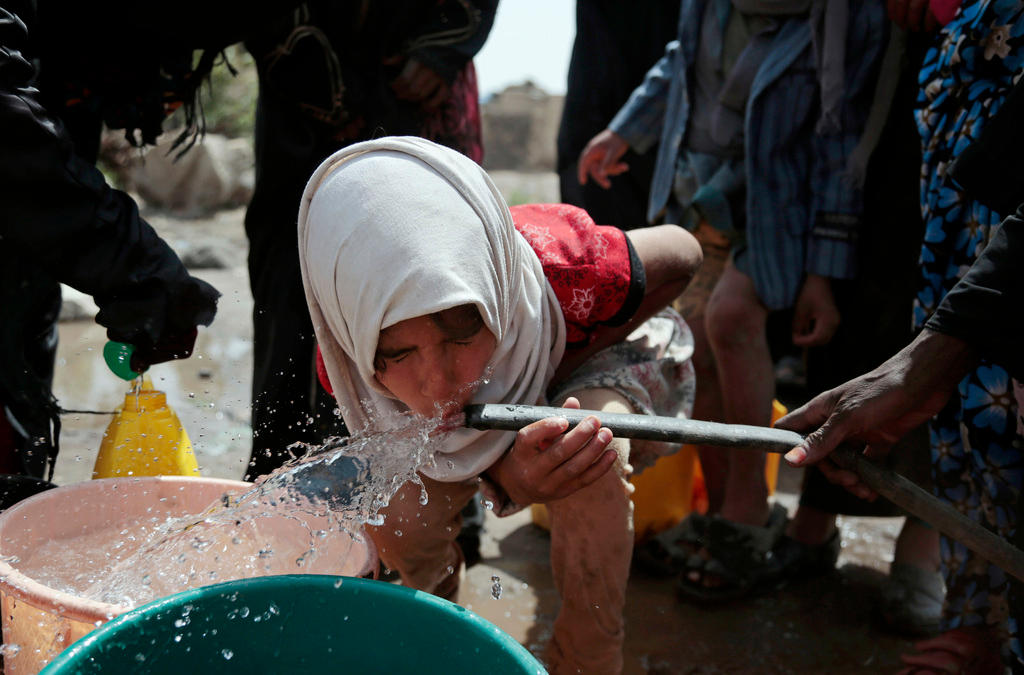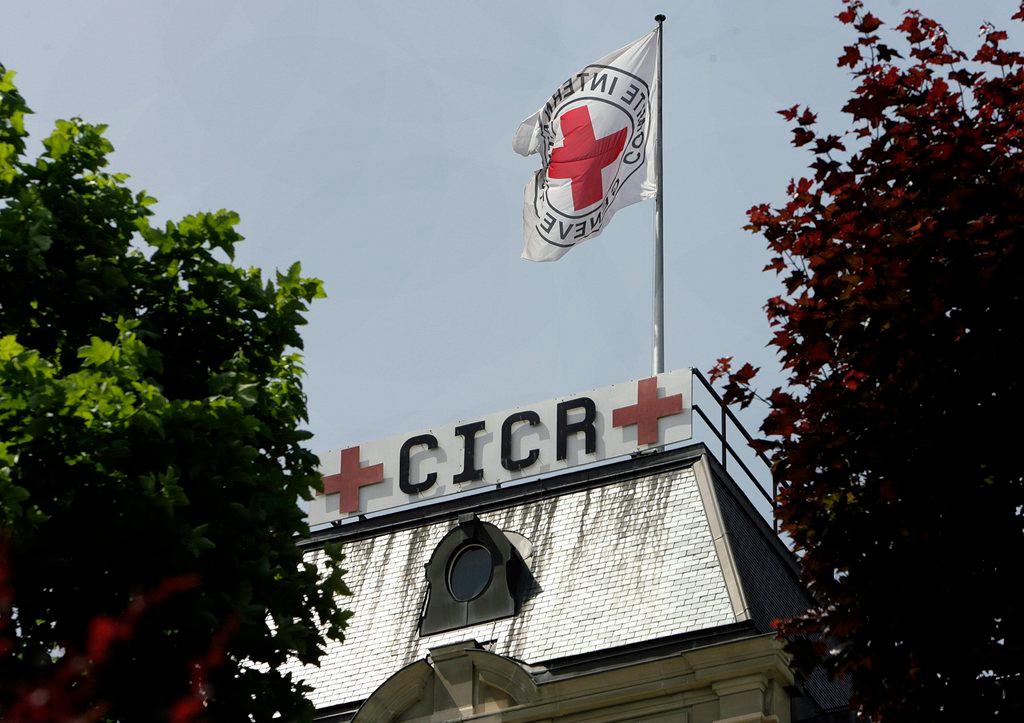The ICRC as a Swiss political tool

Neutrality is the watchword for the International Committee of the Red Cross. But with a greater push for closer business ties, how will that policy play out? History has some valuable lessons.
Historian Beatrice Veyrassat once described Switzerland’s ability to adapt to the 19th century as a result of its “pragmatism and flexibility”. The same could be said for the growth of the International Committee of the Red Cross (ICRC).
On a diplomatic level, the Swiss government uses the ICRC’s impartial humanitarian action as an example of its own neutrality. Swiss industry also benefits from this neutrality in the service of victims of war.
It’s not surprising then that ICRC head Peter Maurer has openly welcomed increasingly closer ties between the ICRC and the business world, at a time when states are finding it more and more difficult to assume their role in preventing conflict.
Early backers
In a brochure from November 2016 aimed at donor companies, Maurer cited the “institution’s valuable engagement with the corporate sector from its inception more than 150 years ago”.
He said: “From the very early days of financial support from Geneva banks and individuals, right through to the creation of the Corporate Support Group and beyond, the ICRC has valued and nurtured its relationship with the corporate sector. In the past decade or so, that relationship has strengthened and developed a great deal.”

More
A chronology of caring
Maurer, a former Swiss State Secretary, added: “The corporate sector’s wealth of ideas, expertise and resources … has become vital in helping the ICRC to better deliver on its mandate. Conversely, cross-sector collaboration in fragile environments provides corporate partners with new opportunities and new markets for pioneering products and services. Yet much more remains to be done.”
In the same brochure, the ICRC notes that it has participated in the Swiss-based World Economic Forum (WEF) since 2005 and that the ICRC president has been a member of the Forum’s Foundation Board since November 2014.
And yet, the WEF’s members and partners include heavyweights from the arms industry, like the European firm Airbus Defence and Space, the British BAE Systems and the American Lockheed Martin.
Nonetheless, in January 2015 the cabinet approved a headquarters agreement with the WEF granting it status and privileges accorded to other international organisations located in Geneva and elsewhere in Switzerland.
‘Mutually advantageous’
This type of public-private partnership has been popular in International Geneva since the start of the century.
After all, it was at the WEF in Davos in January 1999 that former United Nations Secretary-General Kofi Annan announced his Global CompactExternal link with the corporate world to encourage – rather than bind – business to respect human rights and international labour norms as part of its “social responsibility”.
It’s a partnership that has raised doubts and attracted criticism worldwide, with many NGOs regarding it as a public relations asset for business and questioning the effectiveness of such “social responsibility”.
Questions could also be asked about the ICRC. Since its creation, the ICRC has always been partially wedded to Swiss politics and economics, with a regular rotation of leaders between the government, corporate boards and the head of the ICRC.
“The ICRC was created and grew closely and consistently in line with the government,” write Thomas David and Bouda Etemad in a 1998 article on the notion of Swiss imperialism.
“Since 1864, Switzerland, the depositary nation of the Geneva Conventions and its additional Protocols, has organised diplomatic conferences on the development of international human rights law, to the extent that the neutrality of the ICRC became progressively associated with that of Switzerland. If this proximity was mutually advantageous, Switzerland was [nevertheless] the main beneficiary.”
A foreign ministry document, confidential at the time, says as much. In making the case for Switzerland to give more money to the ICRC, a ministry boss wrote on January 30, 1965: “That the ICRC wants to present itself as free of any influence and allegiance to any government, even that of Switzerland, is derived from the need to be able to invoke at all times this necessary freedom from the threat of foreign interference. But the ICRC has never had any secrets from the Swiss government, which has always had a way into the Committee. For some foreign observers, this attachment is so obvious and reciprocal – the ICRC is an instrument of Swiss policy – that it could motivate certain big states to abstain from financing the ICRC.”
Dark chapter
This hold on the organisation led to its passivity during the Holocaust. With so many historians looking into its wartime action, the ICRC agreed to open part of its archives and in 2006 officially recognised its “failure”.
In a study, historian Irène Herrmann and ICRC historical research officer Daniel Palmieri wrote: “Did the ICRC fail? The question should be examined in more detail, through the prism of a concept that was very popular at the time, that of appeasement. In the case of the ICRC, this policy of conciliation comprised two distinct strands: a purely humanitarian aspect, a feeling at the very heart of the ICRC’s mandate, and a more political journey, that went entirely against neutrality and total independence that the institution claimed to have in this domain.”
The ICRC president in these dramatic years embodied the ties between the government, industry and the ICRC. Max Huber, president of the organisation from 1928 to 1944 and a champion of utmost restraint against the Third Reich, simultaneously presided over the Oerlikon board of directors (1921-1944) and Aluminium Industrie (1929-1941) – two companies that hugely profited from arming the Third Reich, Germany having been Switzerland’s largest trade partner since the start of the 19th century.
It was clearly an exceptionally dramatic time for Europe, and Switzerland, surrounded by Axis powers, didn’t have a lot of room to manoeuvre. But this wasn’t the only time where the proximity of the ICRC and Swiss political and economic leaders caused problems for the organisation.
It was also the case in the Biafra war (1967-1970) where the ICRC was accused of being involved in the “after-sale service” of Bührle, the Swiss arms manufacturer that sold canons to Nigeria in violation of federal laws. And this while the ICRC mission to Biafra was led by August R Lindt, a special envoy from Bern.
If the government and Swiss business circles have largely profited from their proximity to the ICRC, it must be said that at certain times in its history the organisation has taken big risks when it comes to its independence and neutrality. Not least because the political neutrality practised by the Swiss state doesn’t correspond exactly with the humanitarian neutrality at the heart of the “Fundamental PrinciplesExternal link” that the ICRC should observe.
Translated from French by Jessica Dacey

In compliance with the JTI standards
More: SWI swissinfo.ch certified by the Journalism Trust Initiative





You can find an overview of ongoing debates with our journalists here. Please join us!
If you want to start a conversation about a topic raised in this article or want to report factual errors, email us at english@swissinfo.ch.